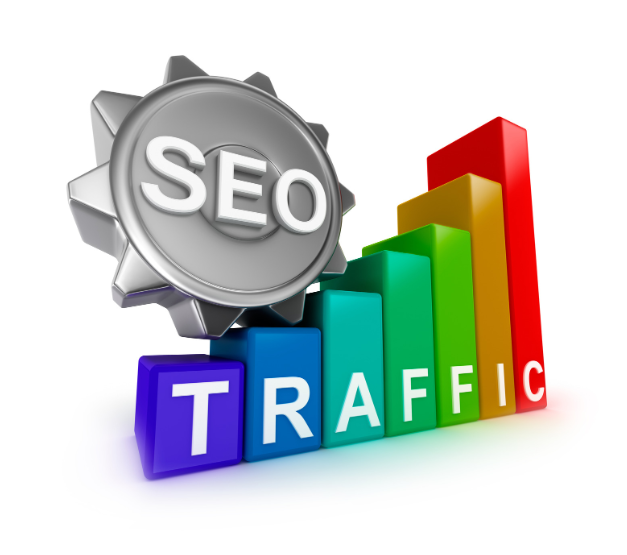Understanding the Landscape of SEO for Small Budgets
SEO, or Search Engine Optimization, is the process of optimizing your website to improve its visibility on search engines like Google. For small businesses operating on limited budgets, implementing effective SEO strategies is crucial for competing online. However, navigating the world of SEO with financial constraints can be challenging. Despite these challenges, small businesses can still achieve significant results with the right approach.
Keyword research is the cornerstone of any successful SEO strategy. By identifying relevant keywords related to your business and industry, you can attract targeted traffic to your website. Fortunately, there are numerous affordable tools available to help small businesses conduct keyword research, such as Google Keyword Planner, Ubersuggest, and AnswerThePublic. These tools provide valuable insights into search volume, competition, and related keywords, allowing businesses to make informed decisions about their SEO strategy.
Crafting high-quality content is another essential aspect of SEO that small businesses can excel in, even on a shoestring budget. By producing informative, engaging, and relevant content, businesses can attract organic traffic and establish authority in their niche. Whether it’s blog posts, articles, videos, or infographics, creating valuable content that resonates with your target audience can drive traffic and improve search engine rankings. Additionally, incorporating long-tail keywords into your content can help capture more specific search queries and attract highly qualified leads.
Building a Solid Foundation: On-Page SEO
Optimizing on-page elements is crucial for improving your website’s search engine visibility. This includes optimizing meta tags, titles, and descriptions to accurately reflect the content of each page. By incorporating target keywords into these elements, businesses can improve their chances of ranking higher in search engine results pages (SERPs). Furthermore, creating unique and compelling meta descriptions can entice users to click through to your website, increasing organic traffic.
User experience (UX) is another critical factor in on-page SEO. Search engines prioritize websites that provide a positive user experience, such as fast loading times, easy navigation, and mobile responsiveness. Improving your website’s UX not only enhances its search engine rankings but also improves conversion rates and reduces bounce rates. Simple strategies such as optimizing images, minimizing HTTP requests, and using responsive design can make a significant difference in your website’s performance.
Maximizing Off-Page SEO with Minimal Resources
Off-page SEO refers to activities that take place outside of your website but still have an impact on its search engine rankings. One cost-effective off-page SEO strategy for small businesses is creating and optimizing a Google My Business (GMB) profile. GMB listings appear in local search results and Google Maps, making them essential for businesses targeting local customers. By providing accurate and up-to-date information on your GMB profile, such as your business name, address, phone number, and business hours, you can improve your visibility in local searches and attract more customers.
Local SEO is another effective off-page SEO strategy for small businesses with limited budgets. By focusing on optimizing your website for local keywords and targeting local search terms, you can improve your chances of ranking higher in local search results. This includes optimizing your website’s title tags, meta descriptions, and content with local keywords, as well as creating local citations and listings on online directories. Additionally, encouraging satisfied customers to leave positive reviews on platforms like Google, Yelp, and Facebook can boost your local SEO efforts and attract more customers.
Technical SEO: Navigating the Basics on a Budget
Technical SEO involves optimizing the technical aspects of your website to improve its search engine visibility. While technical SEO may sound daunting, there are several simple yet effective strategies that small businesses can implement on a budget. One of the most important aspects of technical SEO is website speed and performance optimization. Slow-loading websites not only frustrate users but also receive lower rankings from search engines. Fortunately, there are several free tools available, such as Google’s PageSpeed Insights and GTmetrix, that can help businesses identify and fix performance issues on their websites.
Mobile friendliness is another crucial aspect of technical SEO that small businesses should prioritize. With more users accessing the internet from mobile devices than ever before, ensuring that your website is mobile-friendly is essential for maintaining a competitive edge. Responsive design, mobile-friendly fonts, and touch-friendly buttons are just a few of the elements that contribute to a positive mobile user experience. By prioritizing mobile optimization, businesses can improve their search engine rankings and provide a seamless browsing experience for mobile users.
Monitoring and Adapting: Tools and Strategies for Small Budgets
Monitoring and adapting your SEO strategy is essential for staying ahead of the competition and achieving long-term success. Fortunately, there are numerous free and affordable tools available to help small businesses track their SEO performance and make data-driven decisions. Google Analytics and Google Search Console are two essential tools that provide valuable insights into your website’s traffic, performance, and search visibility. By regularly monitoring key metrics such as organic traffic, keyword rankings, and click-through rates, businesses can identify areas for improvement and adjust their SEO strategy accordingly.
Continuous monitoring and adjustment of your SEO strategy is crucial for staying ahead of the competition and achieving sustainable results. By regularly tracking your website’s performance, identifying areas for improvement, and adapting your strategy accordingly, you can maximise your chances of success in the competitive world of SEO.
Conclusion and Call to Action
In conclusion, while SEO may seem daunting for small businesses with limited budgets, it is entirely possible to achieve significant results with the right strategies in place. By focusing on foundational elements such as keyword research, content creation, and on-page optimization, small businesses can improve their search engine visibility and attract more organic traffic to their websites. Additionally, leveraging off-page SEO tactics such as Google My Business optimization and local SEO can further enhance your online presence and attract local customers. With continuous monitoring and adaptation of your SEO strategy, small businesses can achieve big results and compete effectively in the digital marketplace.
Elevate your online presence with Web Boost Online – your trusted partner for SEO services. Experience the power of effective optimization and watch your website soar to new heights!











